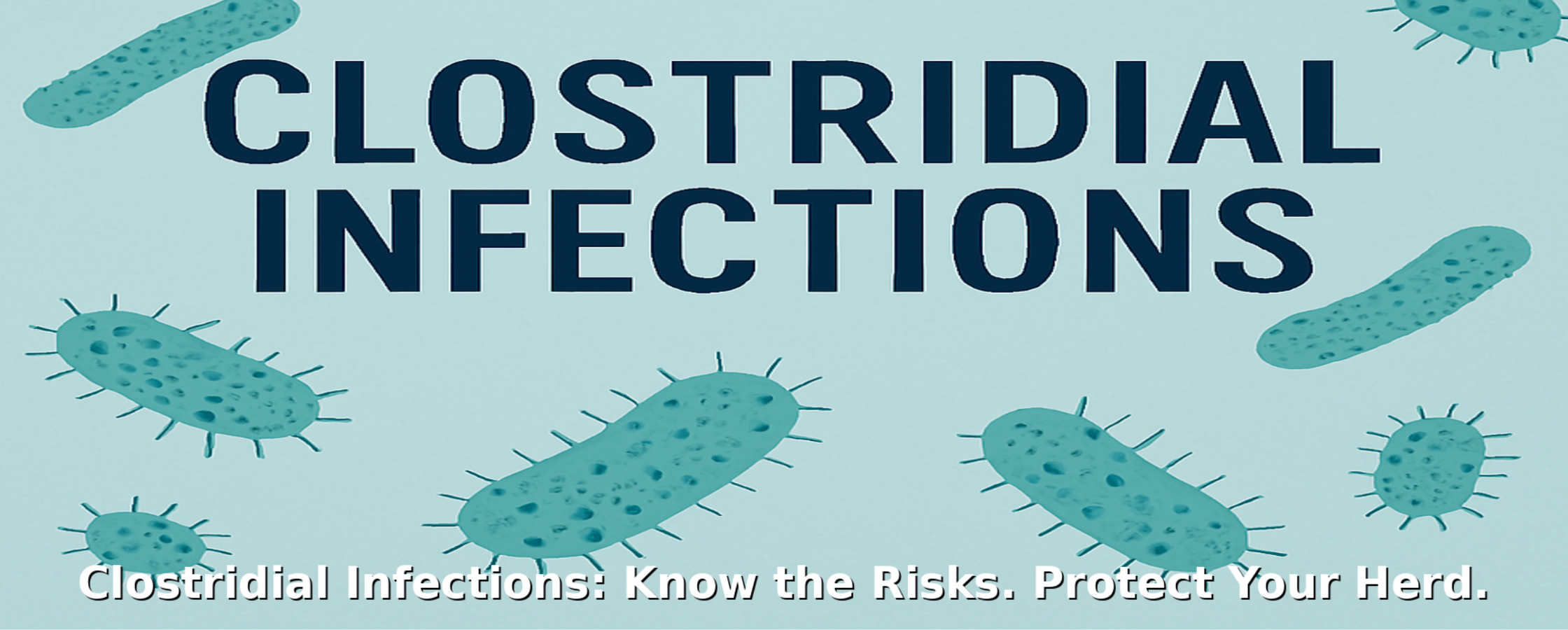
You may have heard the buzz this spring surrounding the rise in clostridial infections—and for good reason. With reported cases climbing and vaccine availability patchy at best, producers are facing increased risk and fewer options for protection. Add in the recent changes to over-the-counter antibiotic access, and it’s easy to see why this season feels like a perfect storm.
So what exactly is clostridium, and what can you do to help protect your herd?
A Quick Look at Clostridium
Clostridium is a group of bacteria that can cause serious, often fatal, infections in cattle—especially in young calves. These infections typically target the gastrointestinal tract, resulting in rapid-onset symptoms that escalate quickly.
The most common culprit is Clostridium perfringens, with types C and D being the most frequently seen in cattle. Both can cause:
- Severe diarrhea
- Rapid dehydration
- Sudden decline in overall condition
It’s often the dehydration, not the bacteria itself, that leads to death—particularly in calves, whose systems can’t rebound as quickly.
There’s also the lesser-known but more deadly type B, which can lead to sudden death with little or no warning. Because this strain progresses so quickly and quietly, survival rates are extremely low.
Why Clostridial Risk Is Rising
A few key factors are making clostridial outbreaks harder to manage this year:
- Vaccine shortages have made it difficult to stick to traditional prevention schedules
- New regulations now require a veterinary prescription for many antibiotics that were once available over the counter
- Weather changes, stress, and shifts in feeding programs can all increase vulnerability to clostridial bacteria
When vaccination isn’t an option, and treatment becomes harder to access, proactive management becomes even more important.
What Producers Can Do
While prevention may be more challenging this year, there are still ways to support your herd’s natural defenses:
- Monitor calves closely for signs of diarrhea or rapid dehydration
- Work with your vet to prioritize vaccination timing and get on a waitlist if needed
- Make sure animals are receiving adequate hydration, nutrition, and gut support
- Use products that help stabilize the rumen and lower digestive stress—especially during times of transition or dietary change
- Maintain clean calving areas and reduce exposure to pathogens wherever possible
Putting It Into Practice
Clostridial infections can strike fast, and the current combination of limited vaccine access and increased regulatory hurdles makes it more important than ever to stay proactive. Keep close communication with your vet, support calf health from the inside out, and take every step you can to keep stress and digestive disruptions to a minimum.
Want to learn more about rumen support and gut-focused immunity? Visit Pro Earth Animal Health for science-backed, natural solutions.
